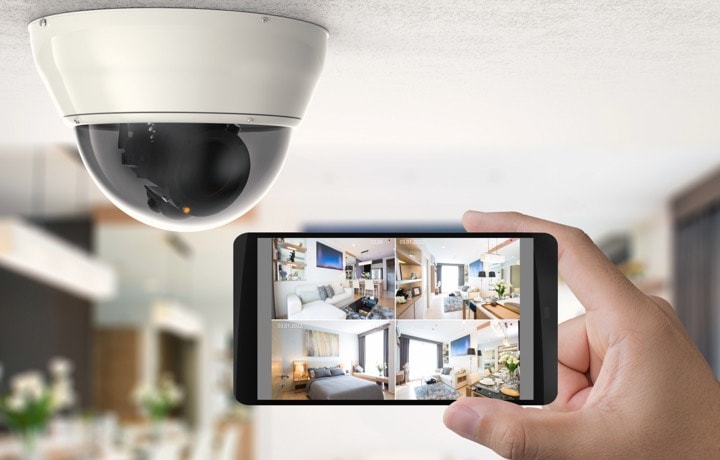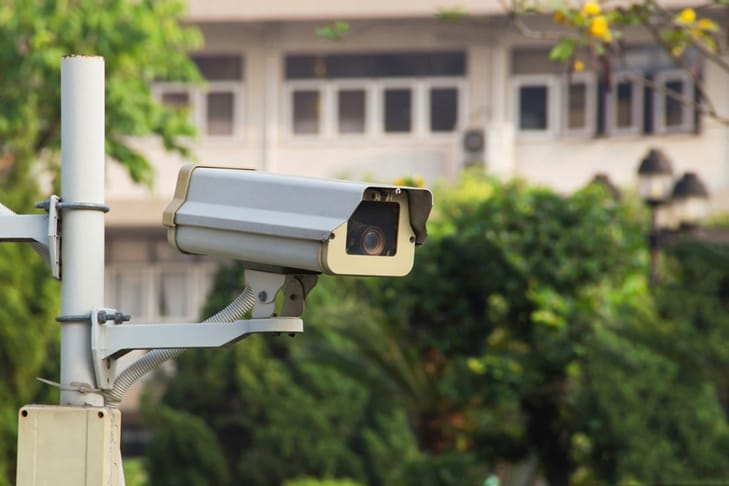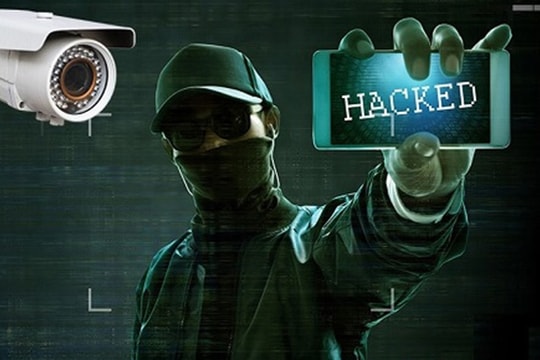Why do security experts recommend against installing security cameras indoors?
More and more families are installing security cameras in their homes to protect their property and personal safety. However, experts warn that these devices can inadvertently invade privacy and pose many potential security risks.
No security camera is truly “hacker-proof.” Any device that connects to the internet can be hacked, and in fact, many camera manufacturers have proven that they are not as trustworthy as users think.
Nowadays, many families equip their homes with cameras as part of a “smart home” ecosystem, to enhance security or to conveniently monitor the elderly and children when they are away from home.

However, a series of recent image leaks and security vulnerabilities show that these devices can become exploited “third eyes”. And according to experts, that is just the tip of the iceberg.
While outdoor security cameras still have some value, indoor cameras are putting users at more risk than they are worth.
Home security cameras are easy prey for hackers
Most home camera systems today allow users to access images remotely - a convenient feature that lets you monitor your home from anywhere with an Internet connection.
However, that convenience also opens the door for hackers. Just by penetrating the smart home network, hackers can completely view the camera feed directly as the owner.
The concern is that most of these devices are linked to central accounts like Google, Apple or Amazon, and sometimes require additional manufacturer-specific accounts. So it's especially important to keep your login credentials secure, always use strong passwords, enable two-factor authentication (2FA) and limit access sharing.
If hackers take control of your device, the consequences can be more serious than you think. Hackers can spy on your private life, record sensitive images, or analyze your habits to find out when you leave the house, making it easy for thieves to steal. In other words, a device designed to protect you can become the most sophisticated tool for invading your privacy and personal security.
When trust in technology "giants" is shaken
The problem of camera security is not only with hackers but also with the companies that manufacture the devices. This is the reason why the famous technology website ReviewGeek (USA) removed both the smart home device brands Wyze (USA) and Eufy (China) from the list of recommended products.
The story begins in 2019, when Wyze was alerted to a serious security flaw that allowed outsiders to access video stored on the camera’s microSD card. Instead of publicly warning users, the company quietly recommended that they upgrade their devices, a move that experts considered a lack of transparency.
Eufy’s case is more controversial. The company claims that camera data is fully encrypted, stored locally, and never sent to the cloud. However, the reality is far from the advertising: when users preview the doorbell alert thumbnail, the screenshot is still uploaded to Amazon Web Services servers without encryption protection.
Researchers from The Verge even demonstrated that with just the camera serial number, UNIX timestamp, and Hex key, hackers could access the video stream, but Eufy has repeatedly denied this.
Behind those incidents is a big question about privacy. Tech companies already have huge amounts of data on users, from search history, location, shopping habits to online interactions.
Do you really feel safe adding 24/7 video footage inside your home? Because if hackers can get in, the manufacturer, with all the system privileges, can do it a lot easier.
Outdoor Security Cameras: A Safer and More Affordable Choice
If you really want to enhance your home security, outdoor cameras are a much better choice. There are countless models on the market today with a variety of features, from 24/7 monitoring, motion detection to phone alerts, all of which provide protection that is equal to, or even superior to, indoor cameras.
Unlike indoor cameras that are prone to privacy invasions, outdoor security cameras are specifically designed to withstand harsh conditions. High-end models can operate reliably in rain, harsh sunlight, and even at night, ensuring clear images in all situations.

In addition, users can choose multi-function devices such as smart doorbells, which act as surveillance cameras and help identify visitors or deliveries.
Most importantly, outdoor security cameras pose less of a privacy risk. In the unlikely event of a hacker breaking in, they can only observe the yard, patio, or street – areas that are already public. The interior, personal activities, and private moments inside the home remain safe.
Traditional Security Systems: A Simpler but More Effective Solution
If you install cameras in your home for security purposes, you are likely spending more money on an ineffective system. Most smart cameras today only start recording when they detect motion and send a notification to your phone.
You have to open the app, check the images, and then decide whether to call the police—a process that takes time and depends entirely on whether you see the alert in time. In many cases, the thief will have left before you can react.
In contrast, traditional alarm systems work more directly and quickly. When they detect signs of intrusion, they activate a loud siren to scare away the intruder and automatically notify the authorities if not turned off within the prescribed time.
While they're not perfect, as they can still be disabled by experienced users, they don't rely on Wi-Fi or mobile apps, which are often the culprits behind smart security devices.
The incidents involving Wyze and Eufy are just the latest reminder that no camera is immune to hackers. While security technology continues to improve, hackers continue to get more sophisticated.
This fact leads to the obvious conclusion that the only way to ensure that your home camera is not hacked is to not install it in the first place. Given the potential risks to personal privacy and security, the benefits of home security cameras seem to be too small to justify./.






